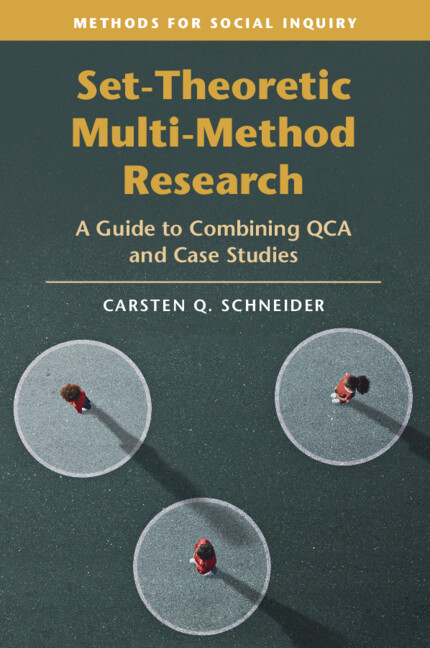Working with Concepts
David Collier is among the most influential thinkers on conceptualization, foundational to social science inquiry. An eminent political scientist, he specializes in mixed methods and comparative politics. Working with Concepts brings together David Collier's most influential research on concepts and measurement, refined and reframed, to offer a systematic approach to concept analysis. It serves as a reference book for both students and seasoned scholars grappling with concepts. Collier's essays are accompanied by commentaries by twelve scholars who connect his contributions to ongoing debates in the field. The commentaries open up new lines of research and provoke ongoing scholarly reaction and innovation. Tightly organized with the aim of moving the field forward, this collection of essays explores some of the contours of the field and its milestones to show how careful work with concepts is a foundation of good methodology. This title is also available as Open Access on Cambridge Core.
- Offers a dynamic introduction to new ideas about concepts and concept analysis
- Employs clear, straight-forward language to address complex issues of method in the formation and application of concepts
- Explores the role of concept formation in formal theory and experimental methods, and in assessing the contribution made by digital methods of concept analysis
- Title is Open Access
Product details
December 2025Hardback
9781009551274
350 pages
229 × 152 mm
Not yet published - available from December 2025
Table of Contents
- Acknowledgments
- Preface Zachary Elkins
- Introduction: learning about concepts David Collier
- Part I. Traveling, Stretching, and Conceptual Hierarchies:
- 1. Conceptual stretching revisited: adapting concepts in comparative analysis David Collier and James E. Mahon
- 2. Democracy with adjectives: conceptual hierarchies in comparative research David Collier and Steven Levitsky
- 3. Trajectory of a concept: corporatism in the study of Latin American politics David Collier
- Research Notes:
- 4. A warning: maintaining conceptual boundaries in the era of democratic anxiety Kurt Weyland
- 5. The V-Dem project: a multidimensional perspective on 'democracy with adjectives' Michael Coppedge
- 6. Successful conceptual traveling: corporatism in Latin America, 1995–2023 Sarah Chartock
- Part II. Typologies and Concept Formation:
- 7. Putting typologies to work: concept formation, measurement, and analytic rigor David Collier, Jody LaPorte and Jason Seawright
- Research Notes:
- 8. Typologies and concept formation: untangling clientelism Simeon Nichter
- 9. Working with typologies: analytic leverage in post-communist studies Danielle Lussier
- Part III. Untangling Concepts: Contestation, Pragmatism, and Disaggregation:
- 10. Essentially contested concepts: debates and applications David Collier, Daniel Hidalgo and Olivia Maciuceanu
- 11. Democracy and dichotomies: a pragmatic approach to choices about concepts David Collier and Robert Adcock
- 12. Inducements versus constraints: disaggregating corporatism Ruth Berins Collier and David Collier
- Research Notes:
- 13. Genocide: a legal concept for the social sciences? Scott Straus
- 14. Contested concepts: a Large-N analysis John Gerring and Lee Cojocaru
- 15. Conceptual disaggregation: strengthening analytic leverage Marcus Kurtz
- Part IV. Measurement Validity:
- 16. Measurement validity: a shared standard for qualitative and quantitative research Robert Adcock and David Collier
- 17. Rival strategies of validation: options and trade-offs Jason Seawright and David Collier
- Research Notes:
- 18. How have interpretivism and big data changed the landscape for measurement validation? Jason Seawright
- 19. Conceptual choices, measurement validity, and dubious dualisms Robert Adcock
- Part V. Reaching Out to New Domains:
- 20. Digital semantics: formal methods of concept mapping Zachary Elkins
- 21. Causal inference: the critical role of concepts Thad Dunning
- 22. Formal theory and concept formation: practical advice for non-modelers Benjamin Lessing
- Part VI. Teaching:
- 23. Moving forward: teaching concepts and concept analysis Jennifer Bussell
- 24. Notes on teaching concept analysis Zachary Elkins
- Part VII. Conclusion:
- 25. Conclusion: working with concepts David Collier and Zachary Elkins.






